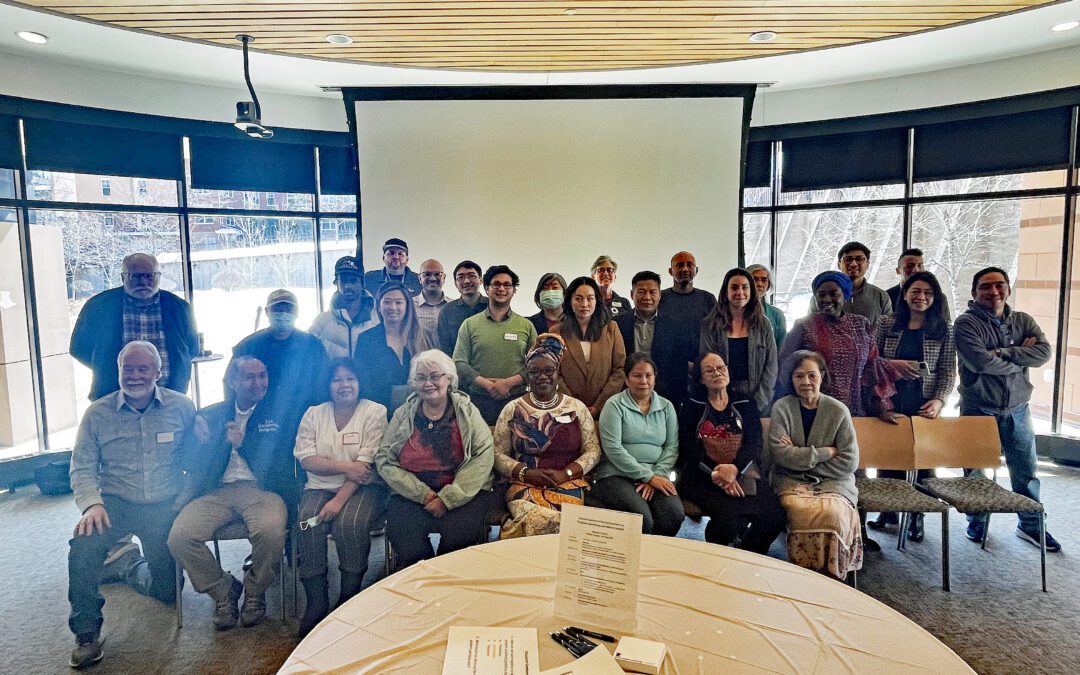On March 25, approximately 50 people — representing the African American, Chinese, Hmong, Laotian, Nigerian and Vietnamese communities — gathered at Wilder Center Auditorium to learn about the impacts of problem gambling and mental health in their respective communities. The purpose of the program was to provide basic information about gambling addiction and its relationship to other addictions and mental health. Additionally, there was specific interest in how to start conversations about these issues across generations. Many of these communities have experienced historic trauma and challenges assimilating into Minnesota’s predominant white culture. Traditional talk therapy is not an easily acceptable model for care in communities that value their privacy.
The program opened with a presentation by Sam Vitiello, Director of Recovery Services, Wilder Community Mental Health & Wellness clinic. Sam engaged the group by explaining how brain development in youth and teens makes them particularly vulnerable to behaviors that could develop into addictions: gambling, gaming, vaping, drug and alcohol use. It’s critical to keep the lines of communication open between parents and children. Parents need to know the resources available to them to minimize harm and to understand why their children are experimenting with substances or spending too many hours gaming or gambling. While parents may decide to limit access, there may be underlying issues that need to be identified and addressed. Elders in the community expressed a need for scripts to help them initiate such conversations. Younger community members expressed frustration that it was often difficult to have open conversations with their elders.
The second part of the program included presentations from each of the groups receiving grants from the Department of Human Services (DHS) to expand problem gambling awareness. Asian Media Access, Lao Center of Minnesota, Neighborhood Youth Academy and Progressive Individual Resources all shared aspects of the work they have been conducting to increase their communities’ awareness. Each community received assistance from Russell Herder, a Minneapolis ad agency that also receives funding from DHS, to bring specific community messaging into visual works for websites, posters, flyers, etc. Each campaign consists of tailored elements which speak directly to each community. For example, Neighborhood Youth Academy works with young Black teen athletes. In addition to their focus on academic achievement, these teens are excellent athletes with goals to play Division 1 basketball. A two-minute video speaks of the importance of staying on track and avoiding the risks that could jeopardize their receiving scholarships in the future. The video also emphasizes the positive message to invest in oneself, to hone one’s skills and to stay away from gambling, as it can keep them from achieving their dreams.
The group also gathered for an open discussion in which attendees asked clarifying questions, expressed a desire to continue learning more and wanted to know how to obtain more tangible help, such as how to have a conversation about difficult topics like gambling and addiction.
Each community needs to drive the change they want to see. MNAPG will continue to be a resource and offer approaches to change, but the real work lies within each community to grow its awareness to this addiction. Stigma and privacy are significant issues that must be addressed. Creating new spaces and offering activities in which community members can gather for socializing will be important alternatives to having casinos as the only place to go. Changing attitudes and behaviors will be challenging.

